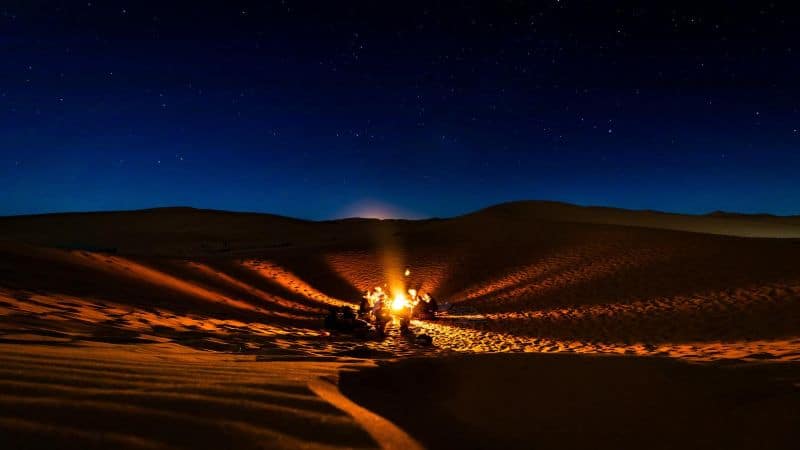Where Is Camping Illegal?
There are many places where camping is illegal. Camping on private property without the owner’s permission is trespassing and is, therefore, illegal. Additionally, there are many public places where camping is prohibited by law. National parks, for example, generally do not allow overnight camping except in designated campgrounds. State parks may have different rules, so it’s always best to check with the park before setting up camp.
Illegal camping can result in a fine or even arrest. In some cases, illegal campers may be required to pay for damages they caused while on the property. For example, if a camper builds a fire that gets out of control and burns down part of a forest, they may be liable for the cost of the damage.
There are many places in the United States where camping is illegal. Here are some specific examples:
- National Parks: Camping is not allowed in most national parks. This is because national parks are typically very fragile ecosystems that can easily be damaged by human activity. In addition, national parks usually have a lot of visitors, so campsites would quickly become overcrowded and unsanitary if camping were allowed.
- Wilderness Areas: Wilderness areas are another type of place where camping is often not allowed. This is because these areas are typically very remote and difficult to access, so they need to be preserved as natural habitats for plants and animals. In addition, wilderness areas are often magnets for hikers and other outdoor enthusiasts, so campsites would quickly become overcrowded and unsanitary if camping were allowed.
- National Forests: Camping is usually allowed in national forests, but there are some exceptions. For example, the San Bernardino National Forest in California has a no-camping rule in place to prevent wildfires. In addition, some national forests have designated campsites that are only for day use, so overnight camping is not allowed.
- State Parks: Camping is usually allowed in state parks, but there are some exceptions. For example, the Florida Keys have a no-camping rule in place to protect the fragile ecosystem. In addition, some state parks have designated campsites that are only for day use, so overnight camping is not allowed.
- Local Parks: Camping is usually allowed in local parks, but there are some exceptions. For example, the New York City Department of Parks and Recreation has a no-camping rule in place to prevent vandalism and overcrowding. In addition, some local parks have designated campsites that are only for day use, so overnight camping is not allowed.
- Private Property: Camping is usually not allowed on private property unless you have permission from the owner. This is because camping can damage property, and it can also be a nuisance to neighbors. In addition, many people consider camping to be trespassing if you do it without permission.
- Beach Camping: Beach camping is usually not allowed because it can damage the environment. Beaches are fragile ecosystems that can easily be damaged by human activity. In addition, beach camping often causes litter and pollution.
- Desert Camping: Desert camping is usually not allowed because it can damage the environment. Deserts are fragile ecosystems that can easily be damaged by human activity. In addition, desert camping often causes litter and pollution.
- Mountain Camping: Mountain camping is usually not allowed because it can damage the environment. Mountains are fragile ecosystems that can easily be damaged by human activity. In addition, mountain camping often causes litter and pollution.
- Urban Camping: Urban camping is usually not allowed because it can damage property and disturb peace. In addition, urban camping often causes litter and pollution.
- Sensitive areas: Camping is often prohibited in sensitive areas, such as wetlands or nature preserves. This is to protect the area from the damage.
- School grounds: Camping on school grounds is usually illegal, as it can pose a safety risk to students and faculty.
- City parks: Some city parks allow camping, while others do not. It’s best to check with the park before setting up camp.
- Places of worship: Camping on church grounds or other places of worship is generally not allowed.
Why Is Camping Illegal In Some Places?
Camping is a great way to enjoy the outdoors, but it’s important to be aware that in some places, it may be illegal. There are a few reasons why this may be the case.
One reason camping may be illegal in some places is because of the potential for fire damage. If there is not a designated area for campfires, or if the area is not properly managed, there is a risk that a fire could start and spread, causing serious damage.
Another reason camping may be prohibited is because of the potential for environmental damage. If campers do not practice Leave No Trace principles, they can cause significant harm to delicate ecosystems. Additionally, campsites that are not properly managed can lead to soil erosion and water pollution.
Finally, some places may prohibit camping simply because they do not want people to camp there. This might be for safety reasons or to protect the area from overuse. Whatever the reason, it’s important to be aware of the local laws and regulations before setting up camp.
Now that you know where is camping illegal let us take a look at some of the reasons why wild camping is illegal.
Why Is Wild Camping Illegal?
1) Wild camping is illegal in most countries because it can damage the environment.
2) Wild camping can also lead to conflict with other people who are using the same area, such as farmers or hikers.
3) Finally, wild camping can be unsafe for both the camper and the people around them. For example, if a fire is not properly extinguished, it could spread and damage property or even injure someone.
Our Final Thoughts
So, where is camping illegal? These places include state, city, and national parks, places of worship, wilderness areas, etc. Some places where camping is illegal may be posted with signs, while others may not. It’s always best to err on the side of caution and assume that camping is not allowed unless there are specific signs stating otherwise.











